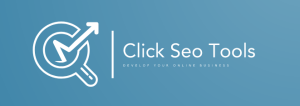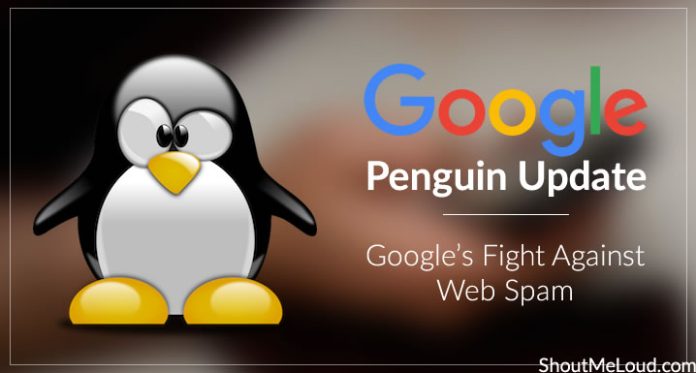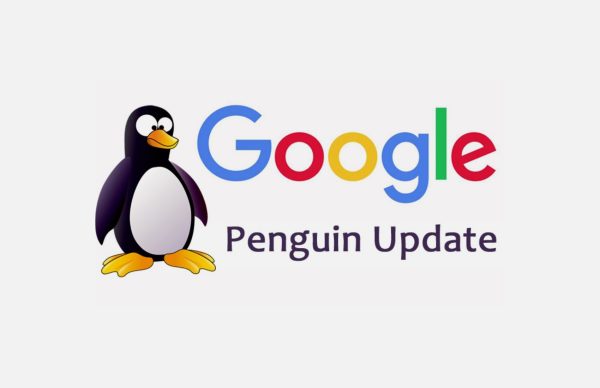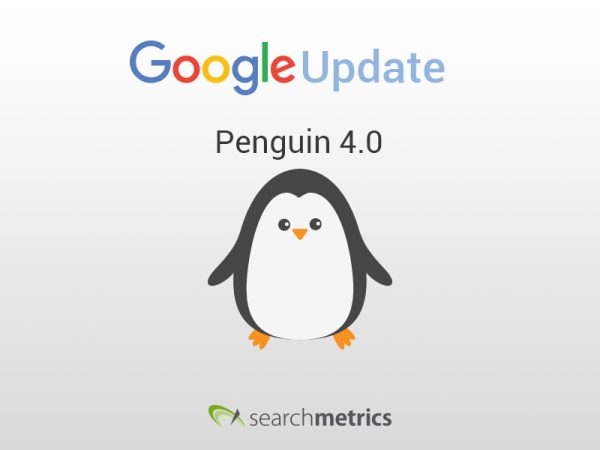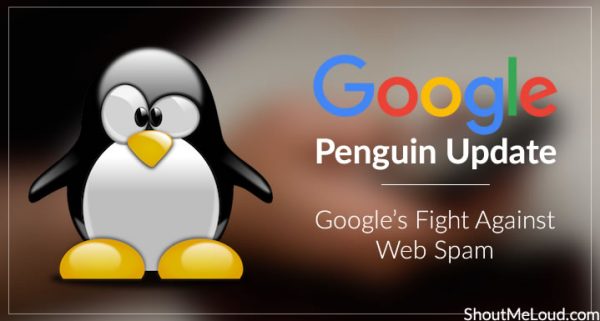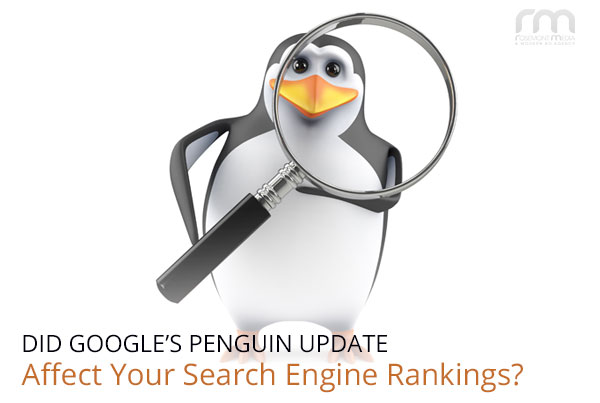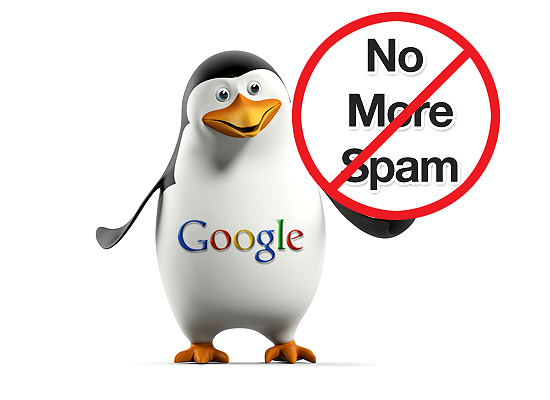If you’ve ever wondered about the Penguin update and its effects on SEO, then you’re in the right place. In this article, we’ll explore what exactly the Penguin update was and how it significantly influenced the world of search engine optimization. Brace yourself for an informative journey that unveils the impact this update had on websites and the strategies that had to be adapted in order to stay in the search engine’s good graces. So sit back, relax, and let’s dive into the intriguing world of the Penguin update.
This image is property of www.emarketexperts.com.au.
Overview of the Penguin Update
Review contents
Introduction to the Penguin algorithm update
The Penguin update was a major algorithm update introduced by Google in 2012. It aimed to combat spammy and manipulative link-building practices that were prevalent at the time. The update specifically targeted websites that were violating Google’s guidelines by using black-hat SEO techniques to artificially boost their search rankings.
Purpose and goals of the Penguin update
The primary purpose of the Penguin update was to improve the quality of search results by penalizing websites that engaged in manipulative link-building practices. Google wanted to ensure that websites with the most relevant and quality content would rank higher in search results, while those employing spammy tactics would be demoted. The update aimed to level the playing field for all websites and promote fair competition within the SEO industry.
Timeline of the Penguin algorithm updates
Since its initial release in 2012, there have been several iterations of the Penguin algorithm. Each update brought refinements and improved the ability to identify and penalize websites with unnatural and low-quality links. The most recent major update to the Penguin algorithm was in 2016, when it became a part of Google’s core algorithm.
Penalties and demotions imposed by Penguin
Websites that were found to be in violation of Google’s link quality guidelines faced penalties and demotions after the Penguin update. These penalties led to a significant drop in search rankings, resulting in decreased visibility and organic traffic for the affected websites. Recovering from Penguin penalties required taking corrective measures to improve link quality and removing or disavowing toxic and unnatural links.
Key Features and Changes in Penguin Update
Focus on link quality and unnatural link detection
The Penguin update placed a strong emphasis on link quality and the detection of unnatural links. Websites that had a high number of low-quality or irrelevant links pointing to them experienced a severe impact on their search rankings. Google’s algorithm became more sophisticated in identifying and penalizing websites with manipulative and spammy link-building tactics.
Emphasis on link relevancy and anchor text optimization
Another key feature of the Penguin update was the increased importance placed on link relevancy and anchor text optimization. Websites with links coming from relevant and authoritative sources received a boost in search rankings, while those with irrelevant or over-optimized anchor text faced penalties. This shift encouraged SEO professionals to focus on building relationships with relevant websites and crafting natural anchor text.
Identification and penalties for link schemes and manipulative practices
The Penguin update also targeted link schemes and manipulative practices employed by websites to artificially inflate their search rankings. Websites engaged in activities such as buying links, participating in link networks, or excessive link exchanges were penalized. Google’s algorithm became better at detecting these schemes and imposing appropriate penalties to discourage such practices.
Inclusion of on-page factors and spam indicators
While the initial focus of the Penguin update was primarily on off-page factors, subsequent updates incorporated on-page factors and spam indicators into the algorithm. Google started considering factors like keyword stuffing, cloaking, and hidden text as indicators of spammy practices. Websites that engaged in such activities faced additional penalties, further emphasizing the need for white-hat SEO practices.
Introduction of real-time Penguin and continuous updates
Prior to 2016, the Penguin algorithm operated on a periodic basis, with manual updates and refreshes. However, with the introduction of real-time Penguin, the algorithm constantly evaluates websites for link quality and other factors. This shift away from periodic updates allows websites to recover from penalties faster if they take the necessary corrective actions promptly.
Impacts and Effects on SEO Strategies
Negative impacts on websites violating link quality guidelines
The Penguin update had a significant negative impact on websites that violated Google’s link quality guidelines. Websites employing manipulative link-building practices saw a sharp decline in their search rankings, leading to a decrease in organic traffic and visibility. This resulted in a loss of potential customers and revenue for these websites.
Positive effects for websites with high-quality natural links
On the other hand, the Penguin update had positive effects for websites that had high-quality natural links. Websites that focused on building relationships with authoritative sources and earned links through quality content saw an improvement in their search rankings. The update rewarded websites that followed white-hat SEO practices and established themselves as trusted and reliable sources of information.
Recovery and reconsideration for penalized websites
Websites that were penalized by the Penguin update had the opportunity to recover and regain their lost search rankings. However, this required a thorough analysis of the website’s link profile, identification, and removal or disavowal of toxic links, and submission of a reconsideration request to Google. Recovery from Penguin penalties could be a time-consuming process, but with the right approach, many websites were able to bounce back.
Challenges faced by SEO professionals in adapting to the changes
The Penguin update brought about significant changes in SEO strategies, and this posed challenges for SEO professionals. Many tactics that had previously been effective were now considered spammy and could lead to penalties. SEO professionals had to adapt their practices by focusing on quality content, natural link building, and user-centric optimization. This shift required a deeper understanding of Google’s guidelines and a commitment to ethical SEO practices.
Evolution of SEO strategies
The Penguin update marked a turning point in the SEO industry, leading to the evolution of SEO strategies. SEO professionals began prioritizing quality over quantity and started focusing on building relationships, creating valuable content, and providing a great user experience. The update forced the industry to elevate its standards and move away from manipulative tactics, ultimately benefiting both users and businesses.
Link Quality Guidelines and Best Practices
Understanding Google’s guidelines for link quality
To adapt to the Penguin update and avoid penalties, it is crucial to understand Google’s guidelines for link quality. Google emphasizes the importance of natural and relevant links, discourages manipulative link-building practices, and places value on user experience. Websites should familiarize themselves with these guidelines and ensure that their link-building strategies align with them.
Importance of natural, relevant, and organic links
The Penguin update reinforced the importance of natural, relevant, and organic links. Websites should aim to acquire links from reputable and authoritative sources within their industry. Links should be earned through quality content, genuine relationships, and providing value to users. By focusing on natural link acquisition, websites can build a strong and sustainable link profile.
Safe link building tactics and strategies
To comply with the Penguin update, SEO professionals must adopt safe link-building tactics and strategies. This includes avoiding link schemes, link networks, and excessive link exchanges. Instead, websites should focus on guest blogging, influencer collaborations, content marketing, and other white-hat methods to attract quality links. The key is to prioritize relevance, quality, and value in link acquisition.
Link audit and cleanup process
Websites that have been penalized by the Penguin update or suspect a link quality issue should conduct a thorough link audit. This involves analyzing the website’s backlink profile, identifying toxic or low-quality links, and removing or disavowing them. It is essential to maintain a clean and healthy link profile to ensure compliance with Google’s guidelines and prevent future penalties.
Balancing link quantity and quality
The Penguin update emphasized the importance of balancing link quantity and quality. While an extensive link profile can be beneficial, it is crucial to prioritize the quality of links over sheer quantity. SEO professionals should focus on acquiring links from authoritative and relevant sources, rather than pursuing a high volume of low-quality links. A balanced approach to link acquisition will lead to sustainable and long-term SEO success.
This image is property of blog.searchmetrics.com.
Dealing with Penalties and Recovering from Penguin
Identifying and diagnosing Penguin penalties
To recover from Penguin penalties, it is essential to identify and diagnose the specific issues that led to the penalty. Websites should closely monitor their search rankings and organic traffic, looking for significant drops that may indicate a Penguin penalty. Analyzing Google Search Console and conducting a thorough backlink analysis can help pinpoint the cause of the penalty.
Conducting a backlink analysis
Once a Penguin penalty is suspected, a comprehensive backlink analysis is necessary. Websites need to evaluate their entire link profile and identify potentially toxic or low-quality links. Various SEO tools can assist in analyzing the link sources, anchor text distribution, and overall link quality. This analysis serves as the basis for the next steps in the recovery process.
Link removal, disavowal, and reconsideration processes
Once toxic or low-quality links have been identified, the next step is to remove or disavow them. Websites should make efforts to contact webmasters and request the removal of such links. If removal is not possible, the disavow tool should be used to inform Google that these links should be ignored. Once the cleanup process is complete, a reconsideration request should be submitted to Google to request a review of the penalized website.
Recovery timeline and patience required
Recovering from a Penguin penalty is neither instant nor guaranteed. The recovery timeline can vary depending on the extent of the penalty and the effectiveness of the corrective measures taken. It is crucial to maintain patience during the recovery process and continue implementing white-hat SEO practices. Consistent monitoring, analysis, and improvement are necessary to regain search rankings and restore organic traffic.
Preventing future penalties
To prevent future Penguin penalties, websites must continue to adhere to Google’s guidelines for link quality. This means avoiding manipulative link-building practices, regularly monitoring the link profile, and promptly addressing any issues that may arise. By proactively maintaining a clean and healthy link profile, websites can mitigate the risk of future penalties and establish long-term SEO success.
Evolution of SEO Practices Post-Penguin Update
Shift towards natural and user-centric SEO
As a result of the Penguin update, the SEO industry experienced a significant shift towards natural and user-centric SEO practices. SEO professionals began prioritizing quality content, user experience, and relevance in their optimization efforts. This shift moved away from manipulative tactics and focused on providing value to users, ultimately improving search rankings and user satisfaction.
Importance of high-quality content and relevance
The Penguin update highlighted the importance of high-quality content and relevance in SEO. Websites that produced valuable, informative, and engaging content were rewarded with improved search rankings. SEO professionals started focusing on creating content that addressed the needs and interests of their target audience, ensuring relevance and enhancing the overall user experience.
Building authority and brand reputation
Post-Penguin, establishing authority and building a strong brand reputation became crucial for SEO success. Websites that became trusted sources of information within their respective industries and developed a reputable brand identity were more likely to achieve higher search rankings. SEO professionals began investing in building relationships, obtaining quality backlinks, and nurturing their brand image to improve visibility and search engine trust.
Diversification of traffic sources
The Penguin update emphasized the need for websites to diversify their traffic sources. Relying solely on organic traffic from search engines became riskier, as penalties could result in significant traffic losses. SEO professionals started exploring alternative traffic sources such as social media, email marketing, and paid advertising to reduce their dependence on search engine traffic and mitigate potential risks.
Social signals and its influence
The Penguin update brought increased attention to the influence of social signals on search rankings. While Google denies the direct influence of social media metrics on its algorithm, many SEO professionals observed correlations between social signals and improved search rankings. As a result, integrating social media marketing into SEO strategies became more prevalent, with the goal of enhancing visibility, engagement, and the overall online presence.
This image is property of i0.wp.com.
Tips for Adapting to Penguin and Enhancing SEO
Staying up-to-date with algorithm changes
Adapting to the Penguin update requires staying up-to-date with the latest algorithm changes and SEO best practices. SEO professionals should regularly monitor industry news, Google’s official announcements, and reputable SEO blogs to stay informed. This enables them to adjust their strategies accordingly, ensuring compliance with Google’s guidelines and maintaining a competitive advantage.
Establishing a strong and natural link profile
In light of the Penguin update, it is crucial to establish a strong and natural link profile. SEO professionals should focus on building relationships with authoritative sources within their industry. By creating valuable content, leveraging guest blogging opportunities, and participating in industry events, websites can attract natural and high-quality links. A diverse and relevant link profile will help improve search rankings and mitigate the risk of penalties.
Monitoring and removing toxic or low-quality links
Regularly monitoring the link profile is essential for maintaining a healthy and compliant website. SEO professionals should use tools to identify toxic or low-quality links and take appropriate action to remove or disavow them. By promptly addressing any link quality issues, websites can minimize the risk of penalties and maintain a strong online presence.
Auditing and optimizing on-page factors
Optimizing on-page factors remains critical for SEO success after the Penguin update. SEO professionals should conduct regular audits to ensure that on-page elements such as meta tags, headings, content structure, and internal linking are optimized effectively. By providing a seamless user experience and following on-page best practices, websites can enhance their search engine visibility and improve organic rankings.
Creating valuable content and engaging user experience
One of the most effective strategies for adapting to the Penguin update is to focus on creating valuable content and providing an engaging user experience. SEO professionals should develop content that addresses user needs, answers their questions, and delivers value. By prioritizing user experience and providing relevant and informative content, websites can attract natural links, improve search rankings, and establish themselves as authoritative sources.
Future Predictions and Potential Penguin Updates
Google’s ongoing focus on user experience
Google’s ongoing focus on providing the best user experience is likely to influence future iterations of the Penguin algorithm. As search engines strive to deliver the most relevant and valuable results to users, websites that prioritize user experience will continue to thrive. SEO professionals should anticipate future updates that reward websites with seamless navigation, fast loading times, mobile-friendliness, and meaningful interactions.
Integration of machine learning and AI
The integration of machine learning and artificial intelligence (AI) is expected to impact future Penguin updates. Google’s algorithms are becoming increasingly sophisticated and capable of identifying manipulative tactics and spammy behavior. As machine learning algorithms become more adept at understanding website content and user behavior, future iterations of the Penguin update are likely to deliver even more accurate and precise penalties.
Increased sophistication of link analysis
With each Penguin update, Google has improved its ability to analyze and evaluate the quality of links. As search engines become more sophisticated in link analysis, future updates may focus on detecting subtle manipulations, paid links, and low-quality sources. SEO professionals should expect an increased emphasis on natural link profiles and a continued shift away from spammy link-building practices.
Continuous need for adapting SEO practices
The Penguin update demonstrated that the SEO landscape is continuously evolving, requiring ongoing adaptation of practices and strategies. SEO professionals must remain agile and adaptable, ready to adjust their tactics as search engine algorithms evolve. Staying informed, monitoring industry trends, and proactively implementing white-hat SEO practices are essential to future-proofing websites against potential Penguin updates.
Redefinition of spam and manipulative tactics
Future iterations of the Penguin update may redefine what constitutes spam and manipulative tactics. Google will likely continue to refine its guidelines and algorithm to combat emerging black-hat SEO practices. SEO professionals must stay vigilant and continuously reassess their strategies to align with Google’s evolving definitions of spam. By prioritizing quality, relevance, and user experience, websites can avoid penalties and thrive in the ever-changing SEO landscape.
This image is property of www.rosemontmedia.com.
Case Studies: Penguin Update Impact
Notable examples of websites affected by Penguin
Numerous websites were significantly impacted by the Penguin update. Examples include websites that engaged in manipulative link-building practices, used link networks, or purchased links from low-quality sources. These websites experienced a dramatic drop in search rankings and organic traffic, impacting their online visibility and bottom line.
Analysis of traffic and ranking changes
Analyzing the traffic and ranking changes of websites affected by the Penguin update reveals the extent of the impact. Websites that were penalized experienced a steep decline in organic traffic, resulting in a decrease in user engagement and conversions. Their search rankings also plummeted, making it challenging to regain visibility in search engine results pages.
Recovery stories and best practices followed
While recovering from a Penguin penalty can be challenging, there have been numerous success stories. Websites that implemented comprehensive link audits, removed toxic links, disavowed harmful links, and followed Google’s guidelines for quality link acquisition were able to regain lost search rankings. These success stories highlight the importance of proactive measures and ethical SEO practices.
Lessons learned from successful recoveries
Successful recoveries from the Penguin update have taught valuable lessons to SEO professionals. It is crucial to focus on quality over quantity, prioritize natural link acquisition, and regularly monitor the link profile for potential issues. Building relationships with authoritative sources, producing high-quality content, and adhering to Google’s guidelines are key to recovering from penalties and maintaining SEO success.
Long-term impact on website performance
The Penguin update’s long-term impact on website performance goes beyond search rankings and organic traffic. Websites that successfully recover from penalties and implement ethical SEO practices can build stronger and more sustainable online presences. By fostering user trust, establishing authority, and providing valuable content, these websites can attract a loyal audience and achieve long-term growth and success.
Conclusion
The Penguin update was a significant turning point in the world of SEO. It aimed to combat manipulative link-building practices and promote higher quality and more relevant search results. Websites that violated Google’s link quality guidelines faced penalties and demotions, while those practicing white-hat SEO tactics were rewarded with improved search rankings. SEO professionals were challenged to adapt their strategies, focusing on natural link acquisition, user-centric optimization, and providing valuable content. Staying up-to-date with algorithm changes, adhering to Google’s guidelines, and regularly monitoring link profiles are vital for long-term SEO success. As Google continues to refine its algorithms and combat spammy tactics, the need for ethical and quality-focused SEO practices will remain.
This image is property of internetrepublic.com.
